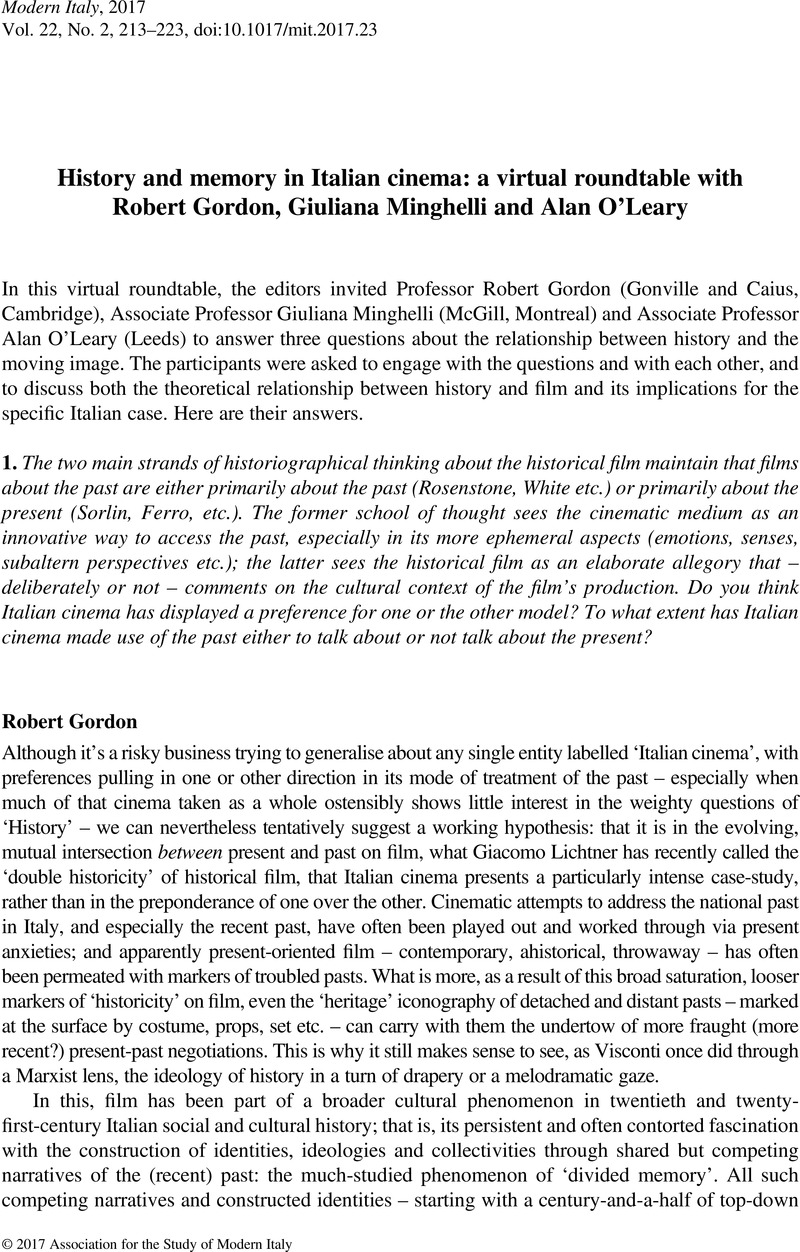No CrossRef data available.
Published online by Cambridge University Press: 18 May 2017

1. Hartley, L. P., The Go-Between (London: Hamish Hamilton, 1953)Google Scholar. The first clause of Hartley’s sentence was famously appropriated by David Lowenthal for his study of how (as the blurb for the revised edition puts it) ‘we celebrate, expunge, contest and domesticate the past to serve present needs’. Lowenthal, , The Past is a Foreign Country (Cambridge: Cambridge University Press, 1985)Google Scholar; The Past is a Foreign Country – Revisited (Cambridge: Cambridge University Press, 2015)Google Scholar.
2. Stubbs, Jonathan, Historical Film: A Critical Introduction (London: Bloomsbury, 2014), 34–35 Google Scholar.
3. See Gordon, , The Holocaust in Italian Culture, 1944–2010 (Stanford: Stanford University Press, 2012)Google Scholar.
4. The term is Salman Rushdie’s and echoes Benedict Anderson’s idea of ‘imagined community’. Rushdie, , Imaginary Homelands: Essays and Criticism 1981–1991 (London: Vintage, 2010)Google Scholar.
5. Calvino, Italo, ‘Autobiografia di uno spettatore’, preface to Fellini, Quattro Film (Turin: Einaudi, 1974)Google Scholar.
6. Gordon, Robert, Introduction to Twentieth-Century Italian Literature: A Difficult Modernity (London: Duckworth, 2005)Google Scholar.
7. Vacche, Angela Dalle, The Body in the Mirror: Shapes of History in Italian Cinema (Princeton: Princeton University Press, 1992), 12 Google Scholar.